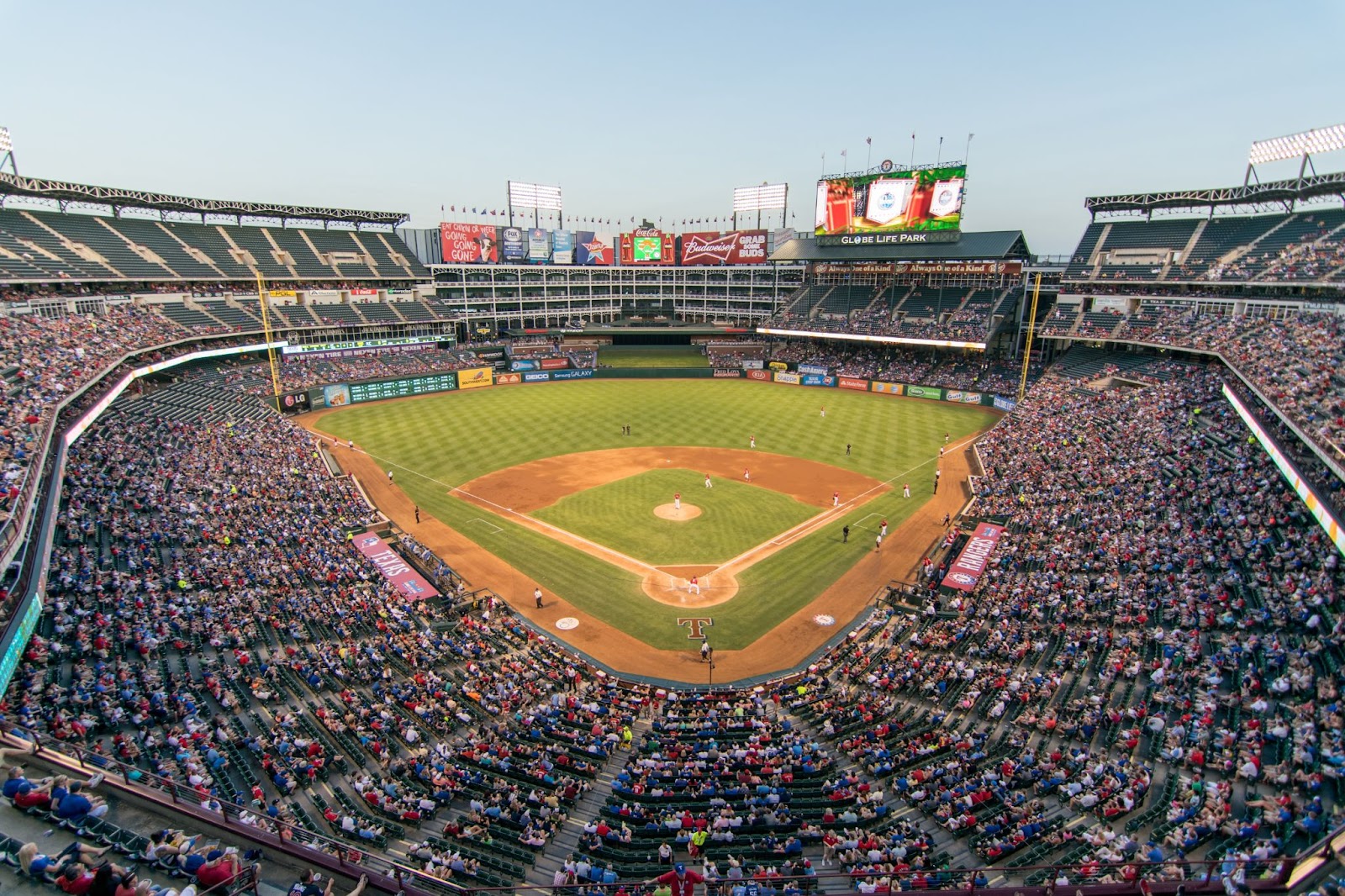In response to recent legislation passed in the state of Georgia, Major League Baseball decided to move the All-Star Game to a new location. MLB’s decision came after substantial deliberation and consideration of different factors. This article will provide an overview of the decisions that lead to the league’s final decision.
MLB’s Initial Decision to Move The All-Star Game
In a statement released April 2nd, Major League Baseball officially announced that the 2021 All-Star game, originally slated to take place in Atlanta, would be moved to Denver in order to demonstrate its values for diversity, equity, and inclusion for all baseball fans. Commissioner Rob Manfred cited “recent developments” – specifically Georgia’s passing of the controversial voting law – as a major factor in the league’s shift. MLB stated that it was “withdrawing support” from Georgia while simultaneously offering its support for the fight against voter suppression nationwide. Referencing the new law, commissioner Manfred wrote, “Major League Baseball principally supports voting rights for all Americans and opposes restrictions to the ballot box.” The league also committed funds toward helping organizations that are actively engaged in supporting communities deeply impacted by recent legislation.
Many MLB players themselves weighed in on the decision with New York Yankees star Aaron Judge stating “Kudos to MLB for taking a stand […] We must stand together against these laws that are attempting to restrict us from exercising our right[s].” Some members of Congress took different approaches with Maryland Senator Chris Van Hollen echoing Judge’s statements and Kentucky Senator Rand Paul offering criticism regarding what he viewed as government overreach into baseball reserves.
Why is MLB Moving All Star Game
On Friday, July 10th, MLB Commissioner Rob Manfred announced that the league would be moving the 2021 All-Star Game in response to the controversial election law changes recently made in Georgia. This move has been seen by many as a strong political statement by MLB and has become a hot button issue among fans, politicians, and sports insiders. The decision to relocate the All-Star game was not an easy one; it took careful consideration of factors such as financial losses associated with losing Atlanta as a host city and potential consequences such as any legal pushback that could arise from Georgia’s leaders. In weighing these various considerations, MLB ultimately decided on Denver as the replacement host city– they felt that this would provide a suitable alternative while sending a clear message about their stances on issues of social justice and civil rights.
In addition to the new location for the 2021 All-Star Game, MLB announced plans to set up one or more new voting locations or voter registration initiatives in Atlanta over the next three years. The league will also be furthering their “Playing Smart” education initiative that is aimed at teaching baseball personnel about political movements and encouraging them to engage in civic action. With these efforts in motion, hopefully combined with other initiatives implemented by other corporations around America, significant progress can be made towards protecting every citizen’s fundamental right to make their voice heard.
Reasons Behind The Move
After much debate and consideration, Major League Baseball has decided to move the 2021 All-Star Game from Georgia to another state. This decision was made in response to the controversial voting law that has been passed in the state and has sparked much controversy over the past few months. In this article, we’ll discuss the reasons behind the move and the impact that it has had on the MLB and the state of Georgia.
Georgia’s New Voting Laws
The Major League Baseball (MLB) moved the All-Star Game from Atlanta, Georgia due to the state’s new voting laws. MLB Commissioner Rob Manfred cited the league’s opposition to legislation implemented in the state that is considered restrictive and discriminatory.
The legislation was signed into law by Governor Brian Kemp in March 2021 and imposes numerous restrictions on voters, including limiting access to early voting, requiring proof of identity when voting absentee and prohibiting alternative drop boxes for ballot collection. Manfred stated that moving the game was an effort to “demonstrate our values as a sport” and provide a more inclusive environment for any fan attending the game. Other protests have accompanied this move, including those by Delta Airlines, Coca-Cola and other businesses based primarily in Georgia calling for changes to the law or its repeal altogether.
It remains uncertain how effective these actions can be in having a lasting impact on voting rights within the state, but it is clear that MLB is committed to protecting its fans from any potential discrimination during the All-Star Game and all other MLB events held in future years.
MLB’s Commitment to Social Justice
The Major League Baseball’s (MLB) decision to move the 2021 All-Star Game from Atlanta, Georgia, to Denver, Colorado was driven by their commitment to promoting social justice and public health. The MLB made the announcement on April 2nd after the enactment of Georgia Senate Bill 202, which restricts access to voting for Georgians.

This decision was part of a larger effort of the MLB’s Commitment to Communities initiative, where the organization works with teams and communities nationwide to provide programs, events and activities that positively impact the social justice landscape in America. The MLB has been particularly active in fighting voter suppression and encouraging its players and fans to actively get involved in improving equity across all aspects of society. To demonstrate this commitment, they have partnered with major organizations such as Rise To Vote who is dedicated to increasing voter participation. The new location for this year’s All-Star Game will be held at Coors Field located in Denver. This move showcases the waning importance of profit maximization as an organization’s sole priority while instead placing significance on service towards their local communities and its people’s well-being; moreover it serves as an example towards other sports organizations on how teams can strive for positive change through engagement with their local political environment as well as advocate for public health initiatives.
MLB’s Desire to Support Local Businesses
The MLB’s intention to move the All-Star game from Atlanta to Denver in 2022 was due in part to the league’s desire to support local businesses. MLB Commissioner Rob Manfred said that this decision was meant to demonstrate that the league supports the business community and stands in solidarity with those being adversely affected by discriminatory voting changes proposed in Georgia. Manfred noted that the change of venue is meant to highlight the need for “an inclusive environment” and show an example of putting new policies and laws into effect which would protect citizens of all backgrounds and views. The decision is particularly significant as Atlanta, Georgia is known as a hub for African Americans, hosting some of their most notable landmarks, restaurants, movie theatres and other attractions.
The Commissioner highlighted that making decisions like choosing a different venue is “essential” while navigating through an ever-changing landscape in our culture. He also noted that this move provided a platform for larger conversations regarding our nation’s responsibility when it comes to combating racism, discrimination, voter suppression and other pressing issues. By making this decision, Manfred sought out not just a venue change but ultimately expressing political leverage in what he describes as taking a stand on important values like fairness and equality for all citizens regardless of race or faith.
Impact of The Move
The decision to move the MLB All Star game from the Atlanta Braves to an alternate location has caused a stir among MLB fans and those who hold the Atlanta Braves in high esteem. This decision wasn’t taken lightly, and has potential impacts on the MLB season and the city of Atlanta.
The following section will discuss how the move of the All Star game will affect the MLB season, the city of Atlanta and the Braves organization.
Financial Impact on Businesses in The New Location
The move of the 2021 Major League Baseball All-Star Game from Atlanta, Georgia to Denver, Colorado will have a significant financial impact on businesses in the new location. MLB is investing millions of dollars into this event to ensure its success. Colorado will benefit from new visitors who will stay in hotels, shop in local stores, and enjoy all that Denver has to offer. The Colorado Economic Development Commission (CEDC) estimates that the game could bring in as much $70 million for the state, with an additional $30 million for Denver specifically. With such a large influx of money and attention comes an expectation of growth and economic development which could lead to further investment opportunities. Additionally, the move has already stirred up investment speculation that could result in even bigger activity levels over the next few years. Organized events like the All-Star Game provide a major boost to businesses throughout the state — hotels and restaurants experience high occupancy rates while souvenir shops open to meet demand. Sports teams also benefit by selling branded items such as hats and t-shirts which create ongoing revenue streams outside of stadium attendance numbers.
Colorado also stands to gain an increase in tourism stemming from possible future visits by people who may enjoy their first All-Star experience enough to return for additional activities and attractions around Denver or along Colorado’s Front Range. With all these factors at play there is no doubt that MLB’s decision has put Colorado on the map both financially and culturally — creating potential long term benefits involving strong job creation numbers and tax revenue increases down the line as well.
Potential Long-Term Impact on The MLB
The decision to move the 2021 All-Star Game and the 2021 MLB Draft has the potential to have lasting effects on Major League Baseball. The relocation of these events serves as a reminder that fans, players, teams, and locales should remain mindful of the consequences of their actions.

Fans may be discouraged from attending games in person due to safety concerns. This could lead to an overall decrease in revenue for teams as less fans attend games and fewer products are sold. Furthermore, MLB sponsors may be hesitant to renew contracts with teams or purchase advertising space if they fear any future backlash stemming from controversial behavior by MLB or its affiliates. Players’ rights and well-being will be increasingly examined in light of this event, as a reminder that there are long-term implications for their own decisions as well. With heightened scrutiny from officials and observers on every play, player behavior may need to be monitored more closely if baseball wishes to maintain its reputation emphasizing respect for all players’ civil liberties and free speech rights. Additionally, player salaries could take a hit if budgets become tighter due to decreased fan attendance or other measures taken in backlash against controversial actions made by players or coaches involving social justice issues.
Overall, the move of the All Star game could have a lasting impact on both fans and players alike: decreased revenues for some teams due to lack of fan support; increased scrutiny over player behaviour; fewer sponsorships; among other factors that may affect Major League Baseball’s future success.
Impact on The All-Star Game’s Legacy
After cancellation of the 2021 All-Star game in Atlanta due to the changing politics within Georgia, MLB made the decision to move the game to Denver, Colorado. This has been a controversial decision, as some argue it will have a lasting impact on the legacy of the All-Star game and MLB sport in general. This move has major implications for the future of baseball since this is one of the most widely watched events in all of professional sports. By relocating from its traditional home, MLB is sending a clear message that politics do play into their decisions and can affect which cities ultimately host marquee events like these. In doing so, they are setting a precedent that future decisions may take into account whether or not certain laws or policies align with their values. Also affected by this move is local business and Atlanta’s sports economy more generally. MLB had to terminate contracts already signed with various hotels and venues across Atlanta, causing financial losses for those businesses that were set to benefit from large scale events like the All-Star game. This further emphasises why it’s so important for baseball stakeholders such as city leaders and local government officials to actively advocate for legislation that is good for business and aligns with MLB values.
Ultimately, MLB’s decision could reshape how quickly cities willing to welcome these sorts of popular sporting events are prioritized moving forward what that means for long standing traditions like choosing host cities for seasonal playoffs or even Hall of Fame inductions could remain unknown until an official announcement about next year’s all star games comes out from Major League Baseball.




No Comment! Be the first one.